Increased testosterone in women: causes and consequences. Causes of high testosterone in women
Testosterone is a word made up of two parts: “testicles” and “steroid”. This is the main hormone in men, but is also produced in small quantities in women. Testosterone was first discovered in 1935, and in 1939 it was first synthesized artificially from cholesterol. Synthetic testosterone subsequently began to be used in sports nutrition for increase muscle mass. The synthetically developed hormone subsequently became one of the main components of anabolic steroids.
Testosterone is an androgynous hormone (produced in both men and women). Thanks to this hormone, secondary sexual characteristics develop in the body and sexual behavior is regulated. The hormone is also involved in nitrogen and phosphorus metabolism. Regulation of hormone production is controlled by the pituitary gland, and testosterone secretion occurs in the testes, Leiding cells, testes and adrenal glands in men. In women, the hormone is normally produced only in the adrenal glands. During pregnancy, the hormone is synthesized in women by the ovaries, converting testosterone into estrogens for the development of mammary glands. The biological effect of the substance is specific, as it affects target tissues.
Low testosterone in men
Testosterone is a kind of “male” elixir that is found in the blood plasma and circulates throughout the body. The hormone is present in the body both in free and bound form. In free form, the hormone is very small, no more than 2% of the total amount.
The main role is played by testosterone bound to proteins - it stimulates muscle mass and burns adipose tissue, as well as the formation of secondary sexual characteristics for the normal development and functioning of the body.
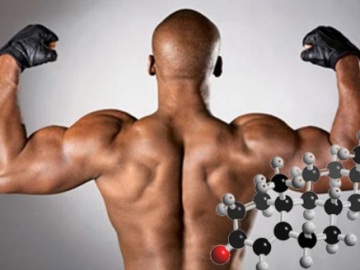 So, a lack of testosterone in men is characterized by several signs:
So, a lack of testosterone in men is characterized by several signs:
- decreased sexual activity;
- irritability;
- tearfulness;
- depression;
- fatigue;
- decreased muscle mass and loss of appetite;
- increased deposition of adipose tissue;
- decreased concentration.
Severe deficiency of the hormone can lead to absence of secondary sexual characteristics and infertility.
Low testosterone levels in men also manifest themselves in other symptoms:
- increased sweating;
- the appearance of alopecia;
- anemia;
- growth of mammary glands;
- obesity in the waist area.
Doctors believe that the main reasons for decreased testosterone are: chronic diseases: diabetes mellitus, heart disease, hypertension, cirrhosis, HIV and AIDS, and tuberculosis.
A decrease in testosterone levels can also occur with normal functioning body. This may be caused by a psychological effect - depression, stress. Age reason, with age there is a decrease in hormone production. Trauma to the genital organs can also lead to the symptoms described above. Low testosterone in men it may be a sign of dysfunction of the pituitary gland, hypothalamus or adrenal glands. Hormone deficiency can be congenital, associated with genetic disorders of the body. In the early stages of life, testosterone deficiency is not noticeable; it only appears during puberty.
An analysis of testosterone levels in the body is prescribed in the following cases:
- infertility;
- decreased or absent sexual desire;
- lack of erection;
- pronounced baldness skin in the chest, legs and head;
- chronic prostatitis;
- prostatitis in the acute stage;
- tumors in the male genital organs;
- osteoporosis;
- obesity;
- acne and pimples in large quantities;
- changes in the functioning of the pituitary gland.
Low testosterone in women
The hormone is also produced in women. Regulation is controlled by the pituitary gland and hypothalamus, and secretion occurs only in the adrenal glands. In a free state, the hormone in a woman’s body is even less than in men – less than 1%. Output male hormone necessary for women to regulate the distribution of adipose tissue, hair, sexual libido. The hormone is necessary during pregnancy to control the growth of the mammary glands. Low testosterone levels in women can be either acquired or congenital. A genetic deviation in hormone production occurs extremely rarely in women; most often, testosterone levels are reduced for acquired reasons:
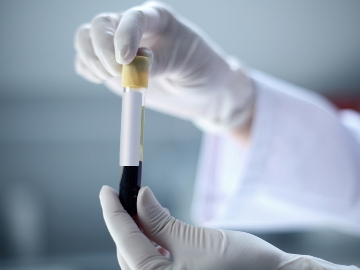
Symptoms low testosterone may not appear for years, but some signs are present on initial stage deficiency, change in appearance:
- withering and sagging skin;
- increased sweating;
- increase in subcutaneous fat with normal nutrition;
- disruptions in the menstrual cycle;
- depression and fatigue;
- decreased sexual desire;
- pregnancy.
A symptom of a decrease in hormones in the body may indicate an early onset of menopause. IN female body The drop in testosterone levels occurs very smoothly and slowly, making it difficult to diagnose such a deficiency. Most often, tests are prescribed to check hormone levels.
Low testosterone in women can cause psychological disorders such as anorexia and bulimia, while the functioning of all organs and systems will be normal.
When taking a hormone test, it is necessary to follow some rules for both men and women, since deviation from them can significantly affect the result of the examination.
- Stop smoking for at least 24 hours.
- Do not use synthetic testosterone (anabolic steroids).
- Avoid stressful situations.
- Refrain from sexual contact for a day.
- Avoid drinking alcoholic beverages.
- Stop taking medications containing hormonal substances.
- Lack of physical activity.
Testosterone is a sex hormone produced by the adrenal glands. Its functions include increasing physical endurance and sexual activity of males. However, it happens that testosterone is excessively increased in a woman, while a man suffers from its deficiency. In this case, when a woman has increased level testosterone, with high probability, she has health problems. Therefore, at the first signs, she needs to contact a gynecologist to find out the reason why there was a disruption in her hormonal levels. Any delay in this matter can have an extremely negative impact on the woman’s reproductive system. What is the cause of increased testosterone in women? Let's find out in this article.
What functions does testosterone perform in the female body?
This hormone is normally produced not only in male body, but also in women's. Undoubtedly, in men its level is much higher than in the fair half. In the female body, the content of testosterone is insignificant, but it is responsible for fulfilling following functions: functional activity bone marrow, formation of a female figure, normal operation reproductive system, muscle growth, height skeletal system during physical formation, regulation of libido.
The cause of increased testosterone in women must be determined. This will help in further treatment.
Normal testosterone levels in a woman
Testosterone must be present in the body of any person in a certain amount, since it is responsible for many important and necessary functions, including proper development skeleton, muscle mass, functioning sebaceous glands and bone marrow. In addition, thanks to it, it is preserved good mood. In female representatives, this hormone promotes the development of the mammary glands and is responsible for ensuring that most body systems are in working order. However, this is only possible if its level is within normal limits.
Unlike men, whose main problem is a decrease in this hormone, in women a deviation from the norm will be its increase.
So, testosterone is increased in women (we will look at the reasons later). This can be noticed even by external signs, since it causes excessive hair growth on the body and face. In addition, the hair becomes dark and coarse, like that of men. Also, the presence of a problem with increasing testosterone levels can be detected through appropriate medical examinations. For all women who are over ten years old, the norm for the presence of the hormone testosterone should be 0.45-3.75 nmol/l. Moreover, in certain periods the norm may shift. For example, a significant decrease in it occurs at the end of menstruation, and a strong increase is observed during the period of bearing a child. Moreover normal level The content of this hormone in pregnant women can be as much as 4 times higher and at the same time not be a dangerous disorder. 
The reason for increased testosterone in women is of interest to many.
What is the main danger?
In some circumstances this may have harmful influence for the whole hormonal background women. It can even cause the cessation of menstrual bleeding, as a result of which significant problems arise when a girl wants to conceive a baby and in carrying a fetus to birth. Therefore, every woman should be examined for testosterone levels in her body before conceiving and, if necessary, undergo the necessary course of treatment in a timely manner, which can protect the fairer sex from a host of problems in the future. What to do when a woman's testosterone is elevated?
Causes and treatment are always interconnected.
Symptoms of high testosterone
In women with elevated levels of the hormone testosterone, the following symptoms can be observed: the body acquires masculine features - the shoulders will become wider, the waist will disappear; excess hair appears on the body and increases its growth, and hair can even appear on the face; the voice breaks down and becomes rough; the skin begins to peel and becomes dry; The hair on your head may begin to fall out and become greasy. 
The cause of elevated testosterone in women sometimes remains unclear.
However, these signs are only external indicators. But there are also internal symptoms of pathology that are much more serious than external ones: aggression, irritability, groundless rudeness; violation menstrual cycle(its complete disappearance is possible); sudden increase in libido, increased physical endurance.
With the appearance of such symptoms in the female body, some kind of dangerous condition, such as Cushing's syndrome or ovarian tumor.
This happens when free testosterone is elevated in women.
Causes
There are many reasons that influence an increase in the amount of testosterone in a woman: pregnancy, ovarian tumor, long-term use of drugs containing hormones ( birth control pills), tumor or hyperplasia of the adrenal glands, polycystic ovaries. 
In some cases, the cause of increased testosterone lies in poor nutrition. Namely in use alcoholic drinks, white cabbage, nuts, which increase the production of this hormone in the body. These are the main reasons for elevated testosterone levels in women. But there are others.
Increased testosterone during pregnancy
When a woman is pregnant, her testosterone levels increase significantly, and this is the only period when such an increase is relatively safe for her. During the entire period of pregnancy, it is possible to double or even triple the level of the hormone progesterone, which is associated with its additional synthesis by the placenta. If you are pregnant with a boy, the woman will have higher testosterone levels than if you are pregnant with a girl.
However increased amount The hormone is safe only in the second trimester of pregnancy. In the first case, this will be a deviation from the norm and can lead to a frozen pregnancy.
Test to determine testosterone levels
If a woman has elevated testosterone, the causes and symptoms may be different, she needs to undergo an appropriate test to determine its level. You just need to find a laboratory that accepts tests and donate blood from a vein to conduct necessary research. Such an analysis usually costs approximately 200-1000 rubles, and a woman can find out its results within a day. To eliminate errors, you need to pay attention to the rules for submitting this analysis. First of all, it is produced from 3 to 5 and from 8 to 10 days of the menstrual cycle. The second point is to stop any physical activity and sports training, as well as avoiding worries and stress the day before the study. Well, the third point is the need to rest and quit smoking 1-2 hours before the analysis. 
By following these simple rules, a woman can count on receiving the highest quality biological material to carry out the analysis, as well as the most accurate and accurate results.
If serious deviations from the corresponding norm are demonstrated and the level of the hormone in the patient’s body increases too much, you should immediately contact a specialist.
How to treat elevated hormone levels?
With elevated levels of the hormone testosterone, therapy is usually carried out using the following medications: Dexamethasone, Digostin, Cyproterone, Diethylstilbestrol.
In addition, glucose medications are successfully used to reduce the level of this hormone: Veroshpiron, Glucophage, Siofor. Included in the data medicines includes metamorphine and spironolactone, which qualitatively suppress the synthesis of excess testosterone.
In addition, a doctor may prescribe an appointment oral contraceptives, such as “Yarina”, “Janine”, “Diana is 35”. 
You should not self-medicate, since women hormonal system it is extremely sensitive for intervention without a doctor’s prescription, and there is also a high risk of side effects. At the end of the course of therapy, further monitoring of testosterone hormone levels will be required, since the possibility of its repeated increase cannot be ruled out.
What should nutrition be like if total testosterone is elevated in women?
The reasons must be clarified. However, in case of a slight increase, you can use a special diet. There are a number of products that short term reduce the level of this hormone. Such natural helpers include: honey, fried vegetables and meat dishes, cherry, vegetable oil, apples, wheat, rice, salt, sugar, caffeine, potatoes, full-fat milk and cream, soy products.
Consequences
The possibility of changes in the body is determined depending on how strongly the level of the hormone was increased. With a slight increase, a woman’s mood will only change, that is, attacks of irritability may appear, increased physical activity, she may begin to grow on her body excess hair where they should not be - on the arms, legs, above the lip.
If the increase in testosterone is significant, then more serious consequences are possible: development diabetes mellitus, changes in body weight, as well as negative changes may occur in the reproductive and reproductive systems. 
When a woman's general or free testosterone, this will be reflected in every area of life, in its physical condition And appearance including. Then development is possible various problems with health. Therefore, every woman needs to remember that she should contact a specialist and undergo necessary treatment when the first signs of an increase in testosterone levels occur.
We looked at the causes and consequences of increased testosterone in women.
When we look at ourselves in the mirror, or at a neighbor on a subway train, or at children playing in the yard, we clearly see our arms, legs, eyes, ears, back, so we understand when someone complains about these “visible” parts bodies.
The fracture on the leg is visible; stye on the eye is also clearly visible; Of course, you can’t see otitis media on your own in the mirror, but the doctor sees it in the mirror; I can hear the cough, the runny nose is annoying... But what about hormones?
They say they exist; moreover, their presence explains a lot of what happens in human life, ranging from behavioral reactions to weight gain. High levels of hormones low level hormones... What is it? What exactly are we talking about?
Endocrine (aka hormonal) system
First, it would be interesting to remember what hormones are. To put it briefly and without unnecessary scientific details that will only confuse the average “non-medical” person, hormones are biologically active substances that are secreted by glands in the body internal secretion and non-glandular tissues.
Hormones are needed in order to regulate the functioning of the body, and some hormones affect only the functioning of individual organs, while the well-being of the entire organism depends on others. The study of hormones began only in the middle of the 19th century, and the term “hormone” itself appeared at the beginning of the 20th century. Today, about a hundred hormonal active substances, which are capable of regulating metabolic processes in organism.
Where are hormones produced? Some hormones are produced by the pineal gland, pituitary gland, hypothalamus, which are located in the brain; other - thyroid gland, adrenal glands, pancreas; sex hormones are produced by the ovaries (in women) and testes (in men), and some others (in fact, there are many of them) - by individual cells and tissues.
What can hormones do, that is, what are they responsible for in the body? They stimulate or, conversely, inhibit growth; influence apoptosis (programmed cell death, because life cycle each cell is limited); stimulate or depress immune system; mood, hunger and satiety depend on hormones; Hormones regulate metabolism and prepare the body for active actions(for example, to run, to jump, to hit, to sexual intercourse); depends on hormones puberty, breastfeeding, the onset of menopause (the notorious menopause; by the way, male menopause also happens and also depends on hormones)…
In a word, it turns out that if not everything in life, then a lot depends on hormones. Therefore, it is simply impossible to overestimate their importance for the body.
We mention some hormones very often, we have never even heard the names of others, but it is hormones that influence our lives a huge impact, affecting mood (serotonin), the feeling of hunger (ghrelin), forcing you to gather and concentrate during stress, danger, injury and states of shock(adrenalin).
Testosterone hormone
Puberty in boys is closely related to the increase in testosterone, and during puberty in boys, under the influence of testosterone, the voice becomes lower, muscle mass increases, sperm begins to be produced, hair appears on the face and body (a beard and mustache begin to grow and “hairiness” appears on the arms, legs, chest, and sometimes on the back).
When a man reaches middle age, the level of testosterone in the body begins to fall - this happens after forty years, but this process is very individual for each man. A decrease in testosterone levels can cause problems with potency and affect (unfortunately, not in better side) on the psycho-emotional state.
Testosterone in women
Although testosterone is called the male hormone, it is also produced in the female body (less, of course, and significantly - about 25 times). However, do without testosterone female body can't either.
It is testosterone that increases sexual desire; it is he who influences the ratio of muscle mass and fat in the body; it is also responsible for building muscle mass and growth bone tissue; testosterone is responsible for burning fat, and without it, biochemical processes that control weight are impossible in the body; It is also testosterone that is responsible for the development of the follicle, that is, for the functioning of the female reproductive system, for the functioning of the bone marrow and for the functions of the sebaceous glands.
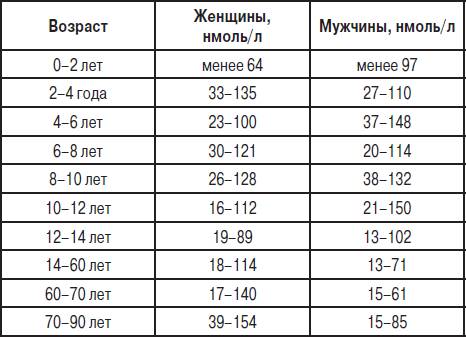
It will probably be interesting that testosterone can also be an antidepressant - too low a level of this hormone will most likely have a negative effect on the mood of any young lady at any age.
And it’s good when everything is fine, that is, testosterone levels are normal. But if testosterone levels increase, be sure to expect some troubles and problems. Yes, this is not surprising - too much depends on him.
High levels of testosterone in the female body
If a man has a lot of testosterone, then he becomes even more “masculine,” but the level of the same hormone in the female body should not increase, since nothing good can be expected from this. The balance of the hormonal system is very complex, and if it is disturbed, health problems will immediately affect.
But if some problems, although upsetting, are not critical, then, for example, negative impact high levels of testosterone on the menstrual cycle and ovulation cannot be called a trifle, since it affects the most important female function- the ability to become pregnant and bear a child.
Is it possible to determine by any signs that the level of testosterone in a woman’s body exceeds the norm? It must be said that there will not be any particular doubts here, because hyperandrogyny, which is what the increased level of male hormone in the female body is called, is, in the literal sense of the word, striking, and it is simply impossible not to notice it.
Firstly, the woman begins to notice that hair, for no apparent reason, began to actively grow where it should not be in the first place, for example, on the back or on the face (this is the explanation of where the telltale mustache hairs or hairs come from). beard).
In addition, in those places where hair growth should be moderate, their number has increased quite significantly, for example, in the groin, on the hands (up to the phalanges of the fingers). But where hair simply must grow actively (this is about a woman’s head and a woman’s hairstyle), it begins to fall out no less actively, even to the point of baldness.
Rashes appear on the skin - acne. The figure may lose its usual shape and become like a man’s. And even the clitoris can grow so large that it noticeably protrudes beyond the labia (of course, these are extremes, but it also happens).

Naturally, you can take a blood test for testosterone. Normal indicators of this hormone fluctuate between 0.7-3 nmol/l, however, if the indicators approach the upper limit, you should not lose sight of this and periodically repeat control measurements. When going to the laboratory to take a testosterone test, you must remember that the amount of the hormone in the blood is unstable and increases during ovulation. It is best to take this test a week (6-7 days) after the start of menstruation.
When menopause occurs, the level of testosterone in a woman's blood decreases.
![]()
High levels of testosterone can cause menstrual irregularities and cause infertility. What kind of pregnancy can there be if the egg does not mature? Although the work of hormones is actually a mysterious and unpredictable process, very little has been studied, and sometimes the ability to give birth to a child is preserved even in cases when everything external signs indicate that this is impossible. But there are still problems with bearing a child, and there remains a very high risk of complications during childbirth.
It must be said that during pregnancy, the level of testosterone in the female body increases naturally, however, if this level was elevated before pregnancy, it must be carefully monitored due to the high risk of miscarriage and miscarriage.
In addition, increased levels of testosterone in the female body can become one of the risk factors for the onset of diabetes.
Why might testosterone levels increase in women? Firstly, there are known cases of genetic predisposition, and secondly, increased testosterone levels can be caused by improper (in this case, increased) functioning of the adrenal glands; thirdly, poor nutrition.
Is it possible to lower testosterone levels?
Of course, interfering with the functioning of the hormonal system is a complex and unpredictable matter. However, you should definitely consult a doctor. If, based on the results of the analysis, it turns out that drug intervention is necessary, the doctor will select and prescribe the necessary drugs.
If we're talking about about treatment of any hormonal imbalances, self-medication is strictly unacceptable and poses a serious danger.
But when there is a problem, you want to somehow participate in eliminating it. Is there really nothing you can do on your own? Proper nutrition can affect testosterone levels (or reduce them).
Sugar and honey reduce testosterone levels natural juices. In this case, fried vegetables (including potatoes) can be very useful; it is better to choose vegetable oil for frying. It is very important that there is enough meat on the menu. But you shouldn’t be overzealous with salt, it daily norm- 3 g (a teaspoon contains 10 g of salt). Preference should be given to white bread, full-fat milk and cream. Soy products are recommended.
A moderate amount of caffeine can also be helpful - we're talking about one cup of coffee a day.
After tests confirm the return of testosterone to normal, you need to constantly monitor its level. Unfortunately, this hormone does not like to give up its position, and its level after finishing the medication course may return to previous levels.
Attention! If you have any doubts about your hormonal status You must immediately seek advice from an endocrinologist and undergo all the necessary tests. Any disease, including hormonal imbalance, it is easier to treat at the initial stage. Although, of course, it is much better not to get sick.
conclusions
 Whether we like it or not, the expression “hormones have risen” quite often reflects the real state of affairs, because it is impossible to predict and control the hormonal reaction.
Whether we like it or not, the expression “hormones have risen” quite often reflects the real state of affairs, because it is impossible to predict and control the hormonal reaction.
Sometimes the speed of such a reaction saves our lives, as it saved the lives of our distant ancestors in the primeval forest, and sometimes the hormonal system brings us trouble and grief.
However, paying attention to your body healthy image life and timely contact with a specialist, if necessary, will allow you to maintain your health for a long time, and remember testosterone only as responsible for sexual desire and weight control :).
Have you had any problems with elevated hormone testosterone in your body?
Testosterone is an androgen sex hormone. In the female body, it performs the function of distributing adipose tissue, regulates libido and sexual health, and is responsible for the maturation of the follicle during ovulation. Participates in the formation of bones and muscle tissue, improves mood, promotes concentration. In women, testosterone is produced by the ovaries and, to a lesser extent, by the adrenal glands.
Testosterone concentrations also fluctuate depending on the time of day. The peak occurs in the morning, and in the evening the level of male hormone in the blood decreases significantly.
Testosterone levels in women:
Test results may vary depending on the laboratory where the test was performed. It's connected with various methods research. Reference values are indicated on the direction form.
Testosterone level analysis
How to determine the level of male hormone in the blood? The attending physician prescribes general analysis testosterone or test for free hormone. Free androgen is not associated with transport proteins in the blood and has greater activity in the body, while the common one is a complex compound, thanks to which it is transported to distant organs.
The test is taken in the morning on an empty stomach. Preparation begins 12 hours before visiting the laboratory: you must refrain from eating, drinking alcohol, and active physical activity. For women, the study is carried out on days 5–7 of the menstrual cycle, because the level of testosterone in the blood depends on the phase. The highest concentration is observed during follicle maturation.
On the 5th day after the start of menstruation, the rejection of the endometrium in the uterus stops, the tissues are completely renewed, and the balance of hormones is restored. After 5–7 days, ovulation occurs. If it is not possible to take the test on the fifth day of the cycle, it is better to postpone the procedure until the next month, otherwise the answer will be uninformative. Exceptions are special indications attending physician.

The result of the analysis can be affected by:
- taking oral contraceptives;
- treatment with hormonal drugs;
- low fat diet;
- heatstroke;
- smoking;
- sexual intercourse on the eve of the study;
- physical exercise.

It is also necessary to first discuss with your doctor the possibility of discontinuing medications that can increase testosterone levels.
Causes and symptoms of high testosterone in women
What is the male hormone responsible for and why does it increase? Can affect the concentration of the hormone in the blood malignant formations ovarian or adrenal glands, polycystic ovary syndrome, long-term use of steroid drugs, pregnancy. Reasons include adrenogenital syndrome, Itsenko–Cushing's disease is a congenital genetic diseases, in which excessive testosterone production occurs.
Symptoms of the pathology appear in external change figures. Fat is deposited in the abdomen, waist and mammary glands. The physique takes on a masculine outline.
The first signs of increased testosterone in women:
- acne on the face and body that cannot be treated;
- seborrhea;
- the appearance of stretch marks (stretch marks on the skin);
- hypersexuality;
- insomnia, nightmares;
- aggressiveness, irritability;
- increased appetite, you want to eat all the time;
- overweight by male type.
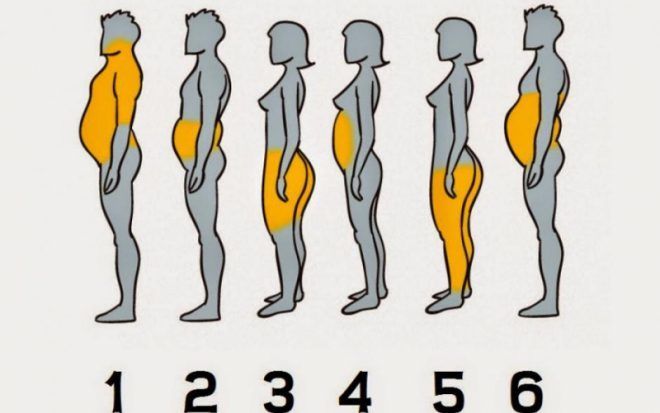
What are the causes and consequences of increased testosterone in women? Excess testosterone in women contributes to the suppression of ovarian function and leads to the appearance of secondary sexual characteristics of the male type (virilism). Girls' voices become rougher, hair growth on the face, chest, legs and arms increases, sweating increases with a change in smell, hair falls out on the head, and the mammary glands, uterus and ovaries partially atrophy. Long-term use Steroid drugs also cause virilism, and symptoms persist for life.
High testosterone in the blood causes enlargement and deformation of the external genitalia. The clitoris and labia become larger and lower, resembling the male scrotum (clitoromegaly). Malfunction of the ovaries leads to problems during pregnancy, cessation of menstruation, lack of ovulation and infertility.
Due to excess testosterone, the reproductive function of the body is disrupted. The ovary, which produces the male hormone, cannot cope with its work, and problems with ovulation arise. A woman cannot conceive a child. Therefore, during pregnancy planning, studies are carried out to determine the level of sex hormones. If deviations from the norm are detected, Dexamethasone and Prednisolone are prescribed.

Pregnancy can increase testosterone levels by 3-4 times, a symptom caused by the formation of the placenta. Very high concentration of androgen on early stages(4–8 and 13–23 weeks) leads to spontaneous abortion, as the growth of the uterus stops. In women with high level androgen makes labor more difficult and disappears quickly breast milk. Pathology can also negatively affect the intrauterine development of the child.
Reasons for low testosterone
A deficiency of male hormones also negatively affects the female body. Fat burning slows down, and the ability to build muscle tissue is lost.
Reasons for decreased testosterone concentration:
- overweight;
- menopause;
- renal failure;
- inflammatory diseases of the ovaries;
- unbalanced diet;
- bad habits;
- Down syndrome.

This condition causes depression, chronic fatigue, absent sexual attraction, sweating increases, rapid weight loss occurs, and blood pressure decreases.
Helps restore hormonal levels replacement therapy testosterone treatment reduces age-related androgen deficiency by stimulating the ovaries to produce testosterone. The hormone comes in tablets or ampoules for injection. Andriol and Methyltestosterone are prescribed in capsule form. Treatment is long-term and can take more than 1 year. As a result, blood pressure normalizes, general health patients, work nervous system, metabolic processes.

How to lower testosterone levels
What to do if the concentration of male hormone in the blood is increased? It is important to adhere to a special balanced diet. Foods rich in proteins and carbohydrates are added to the diet, but these should not be quickly broken down sugars. Preference should be given to the following foods that affect testosterone in women:
- whole grain cereals;
- dairy products;
- fresh vegetables;
- fruits;
- eggs;
- seafood;
- legumes;
- nuts;
- lean meats and fish;

Protein should account for about 40% of your daily calorie intake.
Moderate exercise can help treat high testosterone. leisure, reflexology. It is important to follow a daily routine, ensure proper night sleep. As complementary therapy you can drink tea from decoctions medicinal herbs, beneficial properties possesses lemon balm, licorice root, angelica.
Pharmaceutical assistance
You can restore normal testosterone levels with very high levels using drug therapy. The endocrinologist prescribes a specific course of treatment, taking into account the severity and causes of hormonal imbalance. Typically used:
- Diethylstilbestrol;
- Cyproterone;
- corticosteroids.
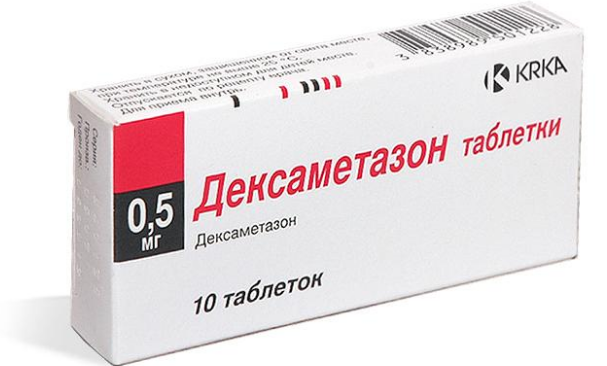
Glucose, which causes insulin secretion, can lower the hormone.
Treatment with Dexamethasone for increased testosterone influences carbohydrate and protein metabolism. But the medicine can cause side effects in the form of arrhythmia, decreased immunity. Therefore, therapy is carried out only as prescribed by a doctor. When normalizing testosterone levels, it is necessary to constantly monitor hormonal levels, because after withdrawal medications, androgen may rise again.
The normal level of the sex hormone testosterone in women depends on the state of the reproductive system. Long-term disturbance of androgen concentration in the blood leads to a decrease reproductive function, miscarriage and male body shape changes.
Each of us, from time to time, experiences emotional outbursts, lethargy, or, conversely, aggression, bad dream or insomnia. When we complain about this, men roll their eyes and diagnose us with PMS. Although they are referring exclusively to our female emotional overload, in the end they turn out to be right, all these symptoms are a consequence of hormonal outbreaks.
You and I sometimes make fun of the opposite sex when we notice in one of them features that are unique to women: a high voice or soft skin, a mane thicker and more attractive than ours or his barely held back tears in the final scene of Titanic. But we never think that we, women, are no less masculine. I’ll tell you a secret, even the most beautiful and sophisticated representatives of the fairer sex hide a drop of masculinity within themselves. Curious? Then let's keep it confidential.
First, let's get acquainted with the facts.
Masculinity hormone
Testosterone is a male sex hormone, androgen. Produced by the adrenal glands and testes. More precisely, in the testes in men, as well as in small quantities in the ovaries in women and the adrenal cortex in both men and women. It is a product of peripheral metabolism and is responsible for virilization in boys and androgenization in girls. (Vicki)
It was discovered by the German scientist Adolf Butenandt in 1931. In 1935, he also created synthetic testosterone, which was later used to increase testosterone levels in both sexes in order to make them stronger, faster and increase reaction speed.
Simply put, the hormone testosterone is present in both men and women, but in different proportions. The more it is, the more pronounced sexual differences and characteristics appear:
- Compacts the bone structure.
- Affects the formation and development of the genital organs.
- Promotes increased hair growth.
- Changes the structure of the larynx, which makes the voice rougher and lower.
- Increases muscle growth.
- Affects nitrogen and phosphorus metabolism.
- Affects the distribution of fat mass.

And also for behavioral ones:
- Aggressiveness.
- Impulsivity of behavior.
- Libido level.
- Dominance.
- Increases intelligence.
- Reduces empathy.
- Affects emotional stability.
IN different periods life, testosterone consistently launches human development programs: from the formation of the child’s gender to the maintenance of reproductive function during adulthood.
The female body cannot do without testosterone! But for proper operation our system, we need it 7 times less than men. He is responsible for such processes as:
- (Oddly enough) Sexual attractiveness.
- Sexual desire.
- Formation of mammary glands.
- Maintaining pregnancy.
- General muscle tone.
- Emotional stability.
Elevated testosterone levels in women
Nature created man as an ideal mechanism, but the conditions of our life lead to disruption of the system. When hormone levels change, there are always consequences. If it is low, apathy, lethargy appears, muscles become flabby and libido suffers. As a result of this, our lives begin to change. Relationships with loved ones and people close to us change, the routine and speed of life changes, a career ceases to captivate us, and the only acceptable hobby seems to be wallowing a limp body on the sofa. What happens if testosterone goes through the roof?
- Failure or complete cessation of the menstrual cycle.
- Ovarian dysfunction.
- Infertility.
- Problems with bearing a child.
- Difficult birth.
- Increases the risk of developing diabetes.
- Depression.
- Clitoral hypertrophy.
- Deterioration of skin condition. Acne.
- Male pattern baldness.
- Sleep disturbance.
- Increased sweating.

And in addition to all of the above, your appearance changes! The voice becomes lower and rougher, hair appears on the face, chest, and back. The body loses its femininity and the gentle appearance is replaced by the strong frame of a weightlifter. The hips lose their roundness, and subcutaneous fat flows into the abdominal area. Excess testosterone also affects a woman’s behavior, worldview, and reaction to current events. Previously unnoticed aggressiveness, the desire to dominate, compete and the desire to take risks appear. As a result, priorities change. I want to build a career, not a family, to make dangerous decisions without paying attention to the risks.
Natural Causes of Increased Testosterone Levels in Women
The reasons for changes can be external: environment and food; and natural (internal). For example, restructuring of the body according to age, pregnancy or a serious disruption of the body’s functioning. You shouldn’t be scared if this is a temporary phenomenon, but if the symptoms manifest themselves too strongly and begin to haunt you, then you should listen to yourself and consult a doctor. What can cause testosterone deficiency?
- Improper functioning of the adrenal glands.
- Drug poisoning.
- Ovarian tumor.
- Disruption of the pituitary gland.
- Megama of the uterus.
- Thyroid gland dysfunction.
- Genetic predisposition.
- Cushing's and Conn's syndromes.
I see how your shaking hands are already reaching out to medical reference book. Do not rush. This scoundrel will again say that your symptoms fit 99% of his contents! Be smart, don't self-medicate! It is still impossible to determine testosterone levels at home. In any case, you will have to consult an endocrinologist or gynecologist-endocrinologist if you have any suspicions. This won’t go away on its own, but the consequences of your fear or laziness can develop into hyperandrogenism and then all the worst things can happen. unpleasant consequences which I described to you above. So don’t be afraid and first of all get tested, consult with a doctor, and only then you can decide for yourself which treatment is right for you, if you need it at all.

Solutions
Every problem has at least two solutions. We can follow the traditional path and regulate it with medication hormonal disbalance, or we can turn to alternative/folk medicine. Naturally, if we are talking about a significant and systematic malfunction endocrine system, then serious medications, but if there is no such problem, then you can try easy ways to control and normalize hormones. Let's start with nutrition!
Include in your diet: Coffee (no more than 1 cup per day), White bread, honey, vegetable oil, a little soy, salt and cream (but not more than 3 grams per day), sugar, natural juices, glucose, vegetables and fruits.
Some well-wishers will advise you to include fried and fatty meat in your diet, but think for yourself, if we are fighting for our femininity, do we still need problems with overweight, not to mention a spoiled stomach?
Brew herbs: angelica, licorice root, marin root, cosimifuga, evening primrose, chaste vitex, saw palmetto (dwarf palm).
Women with large breasts should not overdo it with the latter. It affects the growth of underdeveloped breasts.
Speaking of control, let's remember yoga! This perfect way physical activity, which will help normalize hormones and calm nerves.

